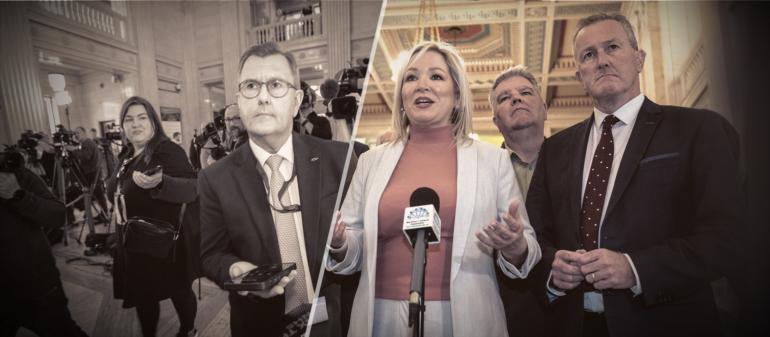Elections for Northern Ireland’s Assembly earlier this month resulted in an historic outcome.
For the first time in the history of the state, a nationalist party that seeks the unification of Northern Ireland with the Republic of Ireland came out on top. Sinn Fein won more seats than its main rival, the Democratic Unionist Party. The DUP wants to keep Northern Ireland within the United Kingdom.
Sinn Fein’s victory allows for its deputy leader, Michelle O’Neill, to become First Minister. But, so far unionists will not agree to a power sharing agreement with their long-time political rivals.
The elections also brought renewed focus to the possibility of a border-poll that could open the door to the unification of Ireland. Although, that may still be years away, the conversation is now underway.
Meanwhile, post-Brexit politics are also causing disruption. Unionists are refusing to take part in the devolved government in Belfast until issues surrounding a controversial trade agreement, called the Northern Ireland protocol, are addressed.
To discuss:
- Eamonn McCann is a writer is a socialist activist
- Ben Lowry is editor of The Belfast News Letter
- John Doyle is Professor of International Conflict Resolution at Dublin City University
- Alan Wager is Research Associate with UK in a Changing Europe.
For More:
Opinion: It will be the DUP – not Sinn Fein – that breaks up the UK https://t.co/Pw2NUDrTgl
— The Independent (@Independent) May 11, 2022
Northern Ireland would be in a ‘very dangerous place’ if protocol is scrapped claims Sinn Fein’s Michelle O’Neillhttps://t.co/QwddyexJRO
— Belfast Telegraph (@BelTel) May 17, 2022
Boris Johnson has been accused of failing to give straight answers after meeting party leaders in Belfast to try to resolve a political impasse over the Northern Ireland Protocol https://t.co/eLE93eJ3Ym
— Sky News (@SkyNews) May 16, 2022
 CGTN America
CGTN America

